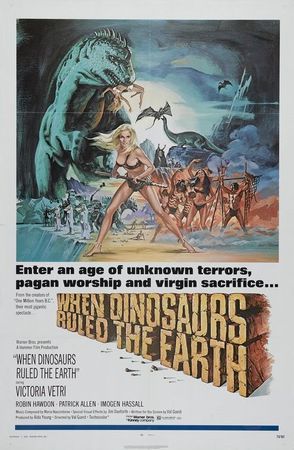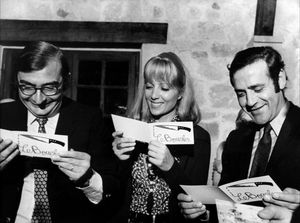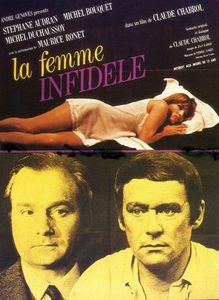Hammer Time! : When Dinosaurs Ruled the Earth!
WHEN DINOSAURS RULED THE EARTH
(UK 1970) Directed by Val Guest
If you want entertainment, nothing beats shapely cave girls catfighting in suede bikinis. That and dinosaurs of course. The great men behind English production company Hammer Films understood this clearly, when in '66 they stroke gold with "One Million Years B.C.", a cool prehistoric adventure starring the stunning Raquel Welsh. Following the success of this silly but entertaining production, Hammer would exploit the formula in films like "Slave Girls" (68), "Creatures that Time Forgot" (71) and of course "When Dinosaurs Ruled the Earth", a sort of sequel to One Million Years.
With no dialogs (just grunts), no clothes (just suede bikinis) and dinosaurs all around (nice Oscar nominated stop motion animation by Jim Danforth and Roger Dicken), the film was a delight for young kids at the time and was directed o n location in Canary Islands by Val Guest, one the great Hammer directors.
n location in Canary Islands by Val Guest, one the great Hammer directors.
To replace Raquel Welsh, Hammer men worked hard to cast a team of bombshells, including Polish delish Magda Konopka, English "Countess of Cleavage" Imogen Hassall, and in the leading part the sizzling Victoria Vetri, Playboy's Playmate of the year 1968 (as Angela Dorian).
And as if this wasn't enough, the first treatment of the screenplay was written by the author of "Crash", J.G. Ballard himself, who got here his first screen credit (although mispelled as J.B. Ballard, it is indeed him)!
When i saw this as a kid, I was mad that those great guys abandoned their next project, "Zeppelin Vs Pterodactyls", a Hammer production that never happened. Of it remains only a poster intended for presales of the film, that is possibly the coolest thing ever. That is after Victoria Vetri's suede bikini, of course. Enjoy.



















